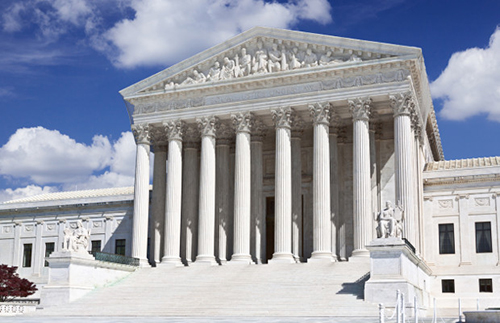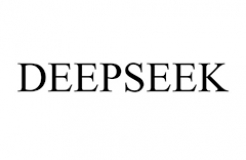没收到验证邮件?请确认邮箱是否正确或 重新发送邮件

#本文由作者授权发表,未经作者许可,禁止转载,文章不代表IPRdaily立场#
发布:IPRdaily中文网(IPRdaily.cn)
作者:Laura A. Lydigsen律师 及Judy K. He律师
供稿:Brinks Gilson & Lione律师事务所
原标题:美国最高法院于WesternGeco LLC v. ION Geophysical Corp.案中获准境外利润损失赔偿
本文案件中,美国最高法院裁决通过了专利权利人可能获得境外利润损失赔偿的决议,尽管该裁决目前严格限制于35 U.S.C. § 271(f) (2)下侵权行为导致的损害赔偿,但本案很可能会打开根据§ 271其它侵权条款所要求的法定境外利润损失赔偿的大门。
本月,美国最高法院在WesternGeco LLC v. ION Geophysical Corp.一案中以7:2的裁定结果判决在35 U.S.C. § 271(f)(2) 和 §284条下,专利权利人可能获得境外利润损失赔偿,该判决扩充了专利法下可获赔偿的范围。
案件背景
WesternGeco LLC就其拥有的四项海底勘探技术专利,根据§§ 271(f)(1) 及 (f)(2)对ION Geophysical Corp.提出指控。ION在美国为竞争系统制造组件,然后将这些组件运往境外的公司。这些境外公司随后将组件与系统结合并与WesternGeco竞争。庭审中,陪审团判定ION赔偿WesternGeco 1250万美元作为在美国制造组件的合理许可费,及9340万美元作为WesternGeco失去境外公司销售的利润损失。在ION的上诉中,联邦巡回法院裁定根据§ 271(f)(2) ION应承担责任,但专利法不允许WesternGeco获得9340万美元的境外销售损失赔偿。
法条拓展
§ 271(f)(1):在美国或从美国供应未经许可专利物之元件全部或主要部分,并积极诱导境外实体在美国之外组装完成侵权产品的,应作为侵权人承担责任。
§ 271(f)(2):在美国或从美国供应未经许可的任何专利物之元件,而此元件特别用于专利物上,并对不侵权使用非主要部分,知晓该元件的制造及意图于美国境外组装的方式会造成侵权,应作为侵权人承担责任。
§ 284 条规定专利侵权损害赔偿,(节选)条文指法院在确认侵权事实后,应判定给索赔人(Claimant)足够的损害赔偿以弥补侵权,且在任何情况下赔偿不得低于侵权人对本发明使用所应付的合理使用费,连同利息与相关法院费用 …… 在任何一种情况下,法院或可将损害赔偿提升至所确认或评估的三倍。
治外法权(Extraterritoriality):属于免除被当地法律管辖的情形,通常为外交谈判的结果。治外法权可适用于物理场所,如外国大使馆、外国军事基地或联合国办事处。
治外法权推定不适用原则(Presumption against Extraterritoriality)指除非国会有明确的相反表示,通常情况推定美国联邦法律的效力不及于美国境外。
最高法院判决
最高法院推翻了联邦巡回法院驳回利润损失赔偿的裁定,最高法院认为“本案中法律关注的行为是在美国境内发生的(Conduct relevant to the statutory focus in this case is domestic)。”因此,WesternGeco获得9340万美元的境外销售损失赔偿并非美国法律所不允许的治外法权适用。法院的理由是§ 284 条重点声明“法院应判定给索赔人足够的损害赔偿以弥补侵权”,法院认为 § 271(f)(2)条下所涉及的侵权问题“集中在美国境内行为,”特别是法条中阐述的“在美国或从美国提供。”因此法院总结,因为WesternGeco的利润损失赔偿不过是“对§ 284 条的国内适用(a domestic application of § 284),”赔偿不因治外法权而被禁止。
本案有两点悬而未决有趣的问题。
第一,通过认定利润损失赔偿属于国内活动范畴,法院回避解决“治外法权推定不适用原则”是否可应用于如35 U.S.C. § 284这样的法条,其仅对国会宣布的非法行为提供一般性赔偿救济。
第二,法院拒绝解答是否其它原则,如近因原则(Proximate cause,指如果没有该原因则结果不会产生,近因不一定与结果在时间或者空间上最为接近,而是与造成结果最为接近),可于特定情况下限制或排除损害赔偿,”因此遗留下的问题是,可能由于国内侵权行为造成的境外损失有多大可能仍获得补偿。
Gorsuch法官对判决发表了反对意见,Breyer法官也加入其中,反对意见援引与主流意见相同的“侵权”参考法条§ 284但得出相反结论:“因为侵权必须发生在美国境内,这意味着原告可获得在美国境内制造、使用或销售其发明的损害赔偿,但不是在其它地方制造、使用或销售其发明。”反对意见对主流意见表示担忧“其将有效地允许美国专利权人利用美国法院将他们的垄断延伸到国外市场,”并指出“扩大损害赔偿”的“戏剧性例子”在理论上会被大多数意见所支持,例如,基于对美国原型微芯片的侵权而发展出对微芯片全球销售利润损失的赔偿。
启示
尽管最高法院对本案的裁决严格限制于35 U.S.C. § 271(f)(2) 下侵权行为导致的损害赔偿,但本案很可能会打开根据§ 271其它侵权条款所要求的法定境外利润损失赔偿的大门。虽然反对意见预测到美国专利保护戏剧性的扩张,近因的一般原则可能会对过度延伸的赔偿理论进行检测。
对本案原告及被告而言,最高法院的判决可能并不会结束双方的争议。2018年5月7日,联邦巡回法院确认了PTAB裁定的WesternGeco 索要9340万美元的销售损失赔偿中4项专利中的3项均为无效的裁决。基于这些无效的专利权利要求,WesternGeco索要的9340万美元销售损失赔偿可能会受到挑战。
附:英文全文
Supreme Court Allows Foreign Lost Profits Recovery in WesternGeco LLC v. ION Geophysical Corp.
On June 22, 2018, the Supreme Court issued a 7-2 decision in WesternGeco LLC v. ION Geophysical Corp., No. 16-1011 (2018), in which it held that a patent owner may recover foreign lost profits under 35 U.S.C. §§ 271(f)(2) and 284, expanding the scope of damages available under the Patent Act.
Background
WesternGeco LLC asserted four patents for ocean floor survey technology against ION Geophysical Corp. under §§ 271(f)(1) and (f)(2). ION manufactured components for a competing system in the United States and then shipped those components to companies abroad. Those overseas companies then combined the components into systems that competed with WesternGeco. At trial, the jury awarded WesternGeco $12.5 million in reasonable royalties for the manufacture of the components in the United States and $93.4 million in lost profits for the sales WesternGeco lost to the overseas companies. On appeal, the Federal Circuit held that ION was liable under § 271(f)(2), but that the Patent Act did not permit WesternGeco to recover the $93.4 million in lost foreign sales.
The Supreme Court’s Decision
The Supreme Court reversed the Federal Circuit’s denial of lost profits, finding that the “conduct relevant to the statutory focus in this case is domestic.” Consequently, WesternGeco’s recovery of $93.4 million in lost profits for the foreign sales was not an impermissible extraterritorial application of U.S. law. The Court reasoned that the focus of § 284’s pronouncement that the “court shall award the claimant damages adequate to compensate for the infringement” is “the infringement.” The infringement in question occurred under § 271(f)(2), which the Court found “focuses on domestic conduct,” specifically “suppl[ying] in or from the United States.” Thus, the Court concluded that because WesternGeco’s award of lost profits was no more than “a domestic application of § 284,” the award was not barred due to extraterritoriality.
WesternGeco is interesting for what it left undecided. First, by finding the award of lost profits pertained to domestic activity, the Court sidestepped resolving whether the presumption against extraterritoriality applies to statutes such as 35 U.S.C. § 284 that merely provide a general damages remedy for conduct that Congress has declared unlawful. Second, the Court declined to address whether “other doctrines, such as proximate cause, could limit or preclude damages in particular cases,” thus leaving for another day the question of how far removed damages incurred overseas may be from the domestic infringing act to still be compensable.
Justice Gorsuch’s dissenting opinion, which was joined by Justice Breyer, cited the same reference to “the infringement” in § 284 relied on by the majority, but reached the opposite conclusion: “Because an infringement must occur within the United States, that means a plaintiff can recover damages for the making, using, or selling of its invention within the United States, but not for the making, using, or selling of its invention elsewhere.” The dissenters expressed concern that the opinion “would effectively allow U.S. patent owners to use American courts to extend their monopolies to foreign markets,” and pointed to “dramatic examples” of expanded damages that would theoretically be permitted by the majority’s opinion, e.g., recovery of worldwide lost profits for microchip sales based on the development of an infringing prototype microchip in the United States.
Implications
While the Supreme Court’s holding in WesternGeco is limited strictly to damages under 35 U.S.C. § 271(f)(2), WesternGeco will likely open the door for recovery of foreign lost profits under other statutory bases for infringement under § 271. Notwithstanding the dissent’s predictions of dramatic expansion of U.S. patent protection, general principles of proximate cause may check overreaching damages theories.
As for WesternGeco and ION, the Supreme Court’s decision is likely not the end of their dispute. On May 7, 2018, the Federal Circuit affirmed the Patent Trial and Appeal Board’s invalidation of claims of three of the four asserted patents that gave rise to WesternGeco’s $93.4 million lost profits award. See WesternGeco LLC v. ION Geophysical Corp., Case No. 2016-2099. Given the invalidation of these patent claims, WesternGeco may face a challenge to the amount of its $93.4 million lost profits recovery.
发布:IPRdaily中文网(IPRdaily.cn)
作者:Laura A. Lydigsen律师 及Judy K. He律师
供稿:Brinks Gilson & Lione律师事务所
编辑:IPRdaily赵珍 校对:IPRdaily纵横君
推荐阅读
“投稿”请投邮箱“iprdaily@163.com”

「关于IPRdaily」
IPRdaily成立于2014年,是全球影响力的知识产权媒体+产业服务平台,致力于连接全球知识产权人,用户汇聚了中国、美国、德国、俄罗斯、以色列、澳大利亚、新加坡、日本、韩国等15个国家和地区的高科技公司、成长型科技企业IP高管、研发人员、法务、政府机构、律所、事务所、科研院校等全球近50多万产业用户(国内25万+海外30万);同时拥有近百万条高质量的技术资源+专利资源,通过媒体构建全球知识产权资产信息第一入口。2016年获启赋资本领投和天使汇跟投的Pre-A轮融资。
(英文官网:iprdaily.com 中文官网:iprdaily.cn)

本文来自Brinks Gilson & Lione律师事务所并经IPRdaily.cn中文网编辑。转载此文章须经权利人同意,并附上出处与作者信息。文章不代表IPRdaily.cn立场,如若转载,请注明出处:“http://www.iprdaily.cn/”

 共发表文章4691篇
共发表文章4691篇文章不错,犒劳下辛苦的作者吧
- 我也说两句
- 还可以输入140个字















